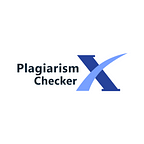Case Studies in Academic Integrity: Learning from Real-Life Scenarios
In the ever-evolving landscape of academia, maintaining integrity in scholarly pursuits is paramount to upholding the principles of honesty, originality, and ethical scholarship. However, navigating the complexities of academic integrity can present numerous challenges for students, educators, and institutions alike. Delve into real-world case studies of academic integrity challenges and explore how Plagiarism Checker X offers effective solutions to mitigate these issues and foster a culture of academic honesty and integrity.
Understanding Academic Integrity
Before delving into case studies, it’s essential to understand what academic integrity entails. Academic integrity encompasses a set of values and ethical principles that guide scholarly conduct, including honesty, fairness, trust, and respect for intellectual property. Upholding academic integrity involves avoiding plagiarism, citing sources properly, acknowledging contributions from others, and adhering to ethical standards in research and writing.
Case Study 1: The Paraphrasing Predicament
Consider a scenario where a student, eager to complete an assignment on time, resorts to paraphrasing content from online sources without proper citation. Despite their efforts to rephrase the text, the student fails to adequately attribute the ideas to the original authors, resulting in unintentional plagiarism. This common pitfall highlights the importance of effective paraphrasing techniques and proper citation practices in academic writing.
Case Study 2: The Pressing Deadline Dilemma
In another scenario, a graduate student, overwhelmed by looming deadlines and academic pressure, succumbs to the temptation of taking shortcuts in their research paper. In a rush to meet the submission deadline, the student copies verbatim text from multiple sources without attribution, unaware of the consequences of academic misconduct. This case underscores the urgency of time management, thorough research, and ethical decision-making in academic endeavors.
Case Study 3: The Publication Predicament
In the realm of academic publishing, researchers face pressures to publish groundbreaking findings and advance their careers. In their pursuit of academic success, some researchers may succumb to the temptation of fabricating data or plagiarizing content from existing literature to bolster their publications. This unethical behavior not only compromises the integrity of scholarly research but also undermines the credibility of academic institutions and the scientific community at large. Plagiarism Checker X serves as a vital tool for journal editors, reviewers, and publishers to uphold rigorous standards of peer review and ensure the authenticity and originality of published research.
Case Study 4: The Dissertation Dilemma
Completing a dissertation is a monumental undertaking that requires meticulous research, analysis, and synthesis of existing literature. Amidst the rigors of doctoral studies, some students may resort to unethical practices, such as recycling sections of their previous work or copying content from external sources without proper citation, to expedite the dissertation process. This form of self-plagiarism not only compromises the academic integrity of the student but also diminishes the scholarly contributions and originality of their research. Plagiarism Checker X offers a comprehensive solution for doctoral candidates and dissertation advisors to ensure the authenticity, coherence, and originality of doctoral dissertations, fostering a culture of excellence and integrity in graduate education.
How Plagiarism Checker X Addresses Academic Integrity Challenges
Plagiarism Checker X emerges as a valuable ally in the fight against academic dishonesty, offering advanced technology and robust features to empower students, educators, and researchers in upholding academic integrity. Here’s how Plagiarism Checker X addresses common academic integrity challenges:
- Comprehensive Plagiarism Detection: Plagiarism Checker X employs sophisticated algorithms and DeepSearch technology to scan documents for similarities with online sources, academic databases, and proprietary repositories. Its extensive database and real-time analysis capabilities enable users to identify and address potential instances of plagiarism effectively.
- Accurate Similarity Score: Plagiarism Checker X provides users with a detailed similarity score, highlighting the percentage of content that matches existing sources. This valuable metric allows users to assess the originality of their work and take appropriate measures to ensure academic integrity.
- Readability Analysis: In addition to plagiarism detection, Plagiarism Checker X offers a Readability Checker feature, allowing users to analyze the readability and complexity of their text. By assessing readability indices and keyword extraction, users can enhance the clarity, coherence, and accessibility of their writing.
As demonstrated by the case studies and insights provided, academic integrity is a multifaceted concept that requires vigilance, diligence, and ethical discernment. By learning from real-life scenarios and leveraging tools like Plagiarism Checker X, students, educators, and researchers can navigate the complexities of academic integrity with confidence and integrity. Together, let us embrace the principles of honesty, originality, and ethical scholarship to uphold the integrity of academia and advance knowledge for the betterment of society.
The journey toward academic integrity is a collective endeavor, and Plagiarism Checker X stands as a beacon of integrity, innovation, and excellence in the pursuit of knowledge and truth.
Stay in Touch
There are many great features to use in Plagiarism Checker X and we continually work to improve them and add new ones, so stay connected for all updates.
